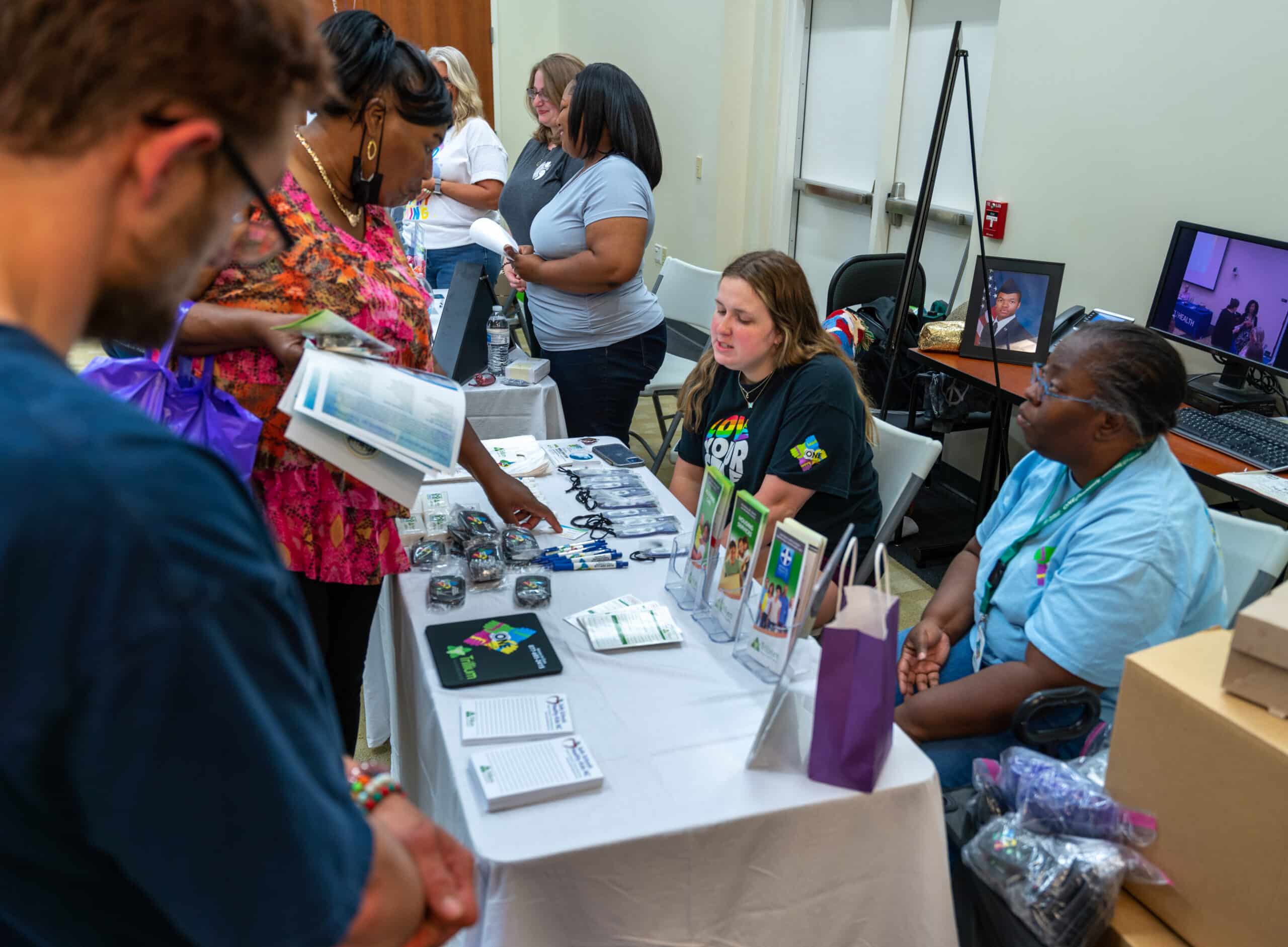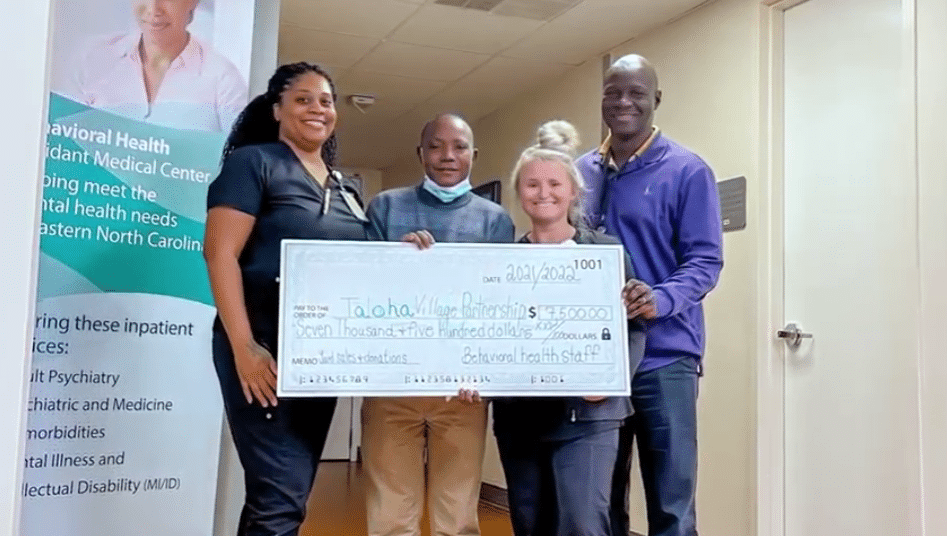ECU Health’s Eastern Carolina Injury Prevention Program (ECIPP), through funding by the North Carolina Department of Health and Human Services (NCDHHS), hosted a youth mental health conference for professionals across the state. The event, “Light the Flame: Igniting Hope for North Carolina’s Youth” drew over 250 attendees from a variety of professions including teachers, coaches, school counselors and mental health professionals.
Some of the topics covered included supporting the mental health and well-being of yourself and others, clinical assessment and intervention, safe firearm storage to prevent suicide by firearms, substance use, social media in connection to youth mental health.
“In our youth, suicide stands as the second leading cause of death, with a staggering 31% increase in suicide attempts in 2021,” said Dr. Shannon Longshore, medical director, ECIPP, pediatric trauma surgeon, ECU Health. “There’s an urgency in all of us who work with kids to find solutions and take care of them. We have to focus on prevention rather than recovery and treatment, and conferences like these can help us begin to move the needle.”
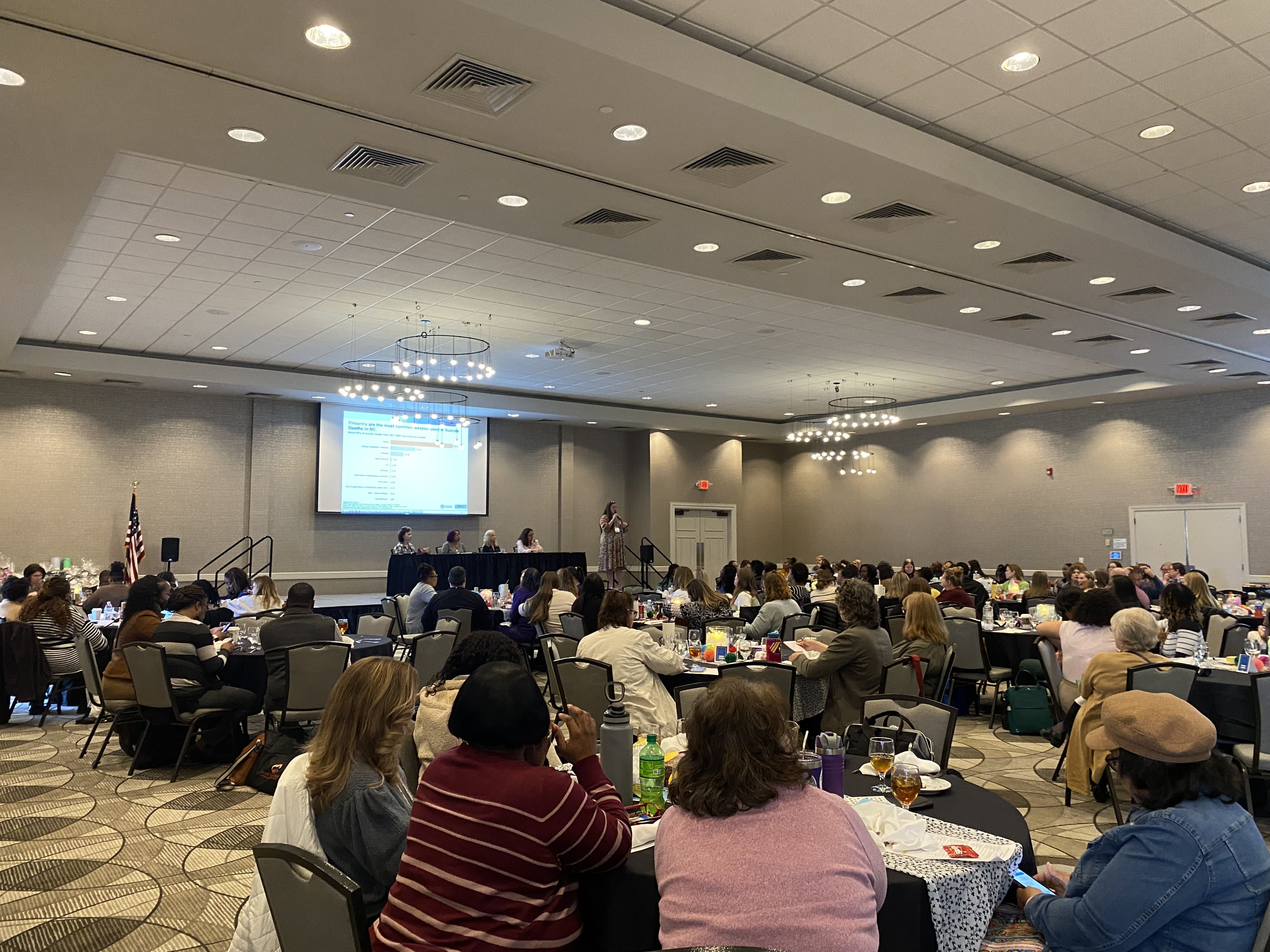
While the event drew attendees from across the state, most came from right here in eastern North Carolina.
“This is a great opportunity to provide further education and a chance for professionals from across the state to network and share experiences,” said Breanna Culler prevention coordinator, ECIPP. “Having this event in Greenville allows us the opportunity to bring resources home.”
Multiple vendors attended the event to connect attendees with resources, including Youth Mental Health First Aid, Rural Opportunities Institute, 988 Suicide & Crisis Lifeline, NC School Health Training Center, Resources for Resilience and more.
GREENVILLE, N.C. (November 1, 2023) – ECU Health and Acadia Healthcare held a ceremony today to celebrate the start of construction on its previously announced state-of-the-art, 144-bed behavioral health hospital in Greenville, North Carolina. The event occurred on the site of the new hospital – located at 2820 MacGregor Downs Road, Greenville, North Carolina 27834 – and celebrated the joint venture partnership between ECU Health and Acadia Healthcare, which will own and operate the new hospital together.
Slated to open in Spring 2025, the hospital will be a center of excellence situated less than a mile from ECU Health Medical Center. It will offer comprehensive inpatient and intensive outpatient treatment for adults, seniors, children and adolescents who struggle with acute symptoms of mental health such as anxiety, depression, bipolar disorder, post-traumatic stress disorder (PTSD), as well as treatment for co-occurring disorders. Thomas Construction Group is the general contractor, and Stengel Hill Architecture is the architect for the project.

“Too many people, including children, in North Carolina get stuck in emergency departments when they urgently need short-term and high-quality behavioral health care,” said North Carolina Department of Health and Human Services Sec. Kody H. Kinsley. “This new hospital will create lasting change in this region by making behavioral health services easier to access when and where they are needed.”
The new hospital will also serve as a teaching hospital for psychiatry, social work, nursing and other behavioral health professionals. This will address the shortage of clinical behavioral healthcare professionals in the area, training students and residents from the Brody School of Medicine at East Carolina University, many of whom will go on to practice in eastern North Carolina and carry forth ECU Health’s mission to improve the health and well-being of the region.
The hospital will include 24 inpatient beds specifically for children and adolescents with behavioral health needs. These beds will be the first of their kind in ECU Health’s 29-county service area and the only child and adolescent beds within 75 miles of Greenville, North Carolina.
“The shortage of mental health resources is a critical challenge in North Carolina,” said Dr. Michael Waldrum, chief executive officer of ECU Health and dean of the Brody School of Medicine. “We are pleased construction is underway for our new behavioral health hospital, and this moment marks another milestone in our effort to improve access to behavioral health care for the region. It will provide the hope and healing residents of Greenville and the surrounding communities need when dealing with complex behavioral health issues.”
Prior to the pandemic, nearly one in five North Carolinians were experiencing a mental, behavioral or emotional disorder, according to a report from the North Carolina Institute of Medicine’s Task Force on Mental Health and Substance Use. In the past three years, national data indicates a growing trend of depression and anxiety symptoms. This partnership demonstrates a commitment to addressing mental illnesses and substance use disorders, normalizing and treating them with the latest science and medicine in appropriate care settings.
“This new hospital will provide North Carolinians with expanded access to quality behavioral health services and treatment from specialized clinical teams in a carefully designed environment,” said Chris Hunter, chief executive officer of Acadia Healthcare. “We are so proud to be affiliated with ECU Health, working together to address the strong need in this area and building upon their legacy and commitment to behavioral health services. This hospital will be a strong member of the Greenville community, collaborating with all organizations, hospitals and first responders. It will be a beacon of hope for patients and families in eastern North Carolina.”
To learn more about the partnership between ECU Health and Acadia Healthcare, visit ENCBehavioralHealth.org.
Angela Lamson and Jennifer Hodgson began collaborating with Greene County Health Care nearly 20 years ago for an integrated care program to benefit patients in eastern North Carolina and provide valuable practical learning opportunities for their East Carolina University students. This began with one ECU medical family therapy student in 2006.
In the years since then, ECU’s partnership with Greene County Health Care focused on the delivery of behavioral and mental health services, in tandem with primary care visits, has flourished, including a recent high of 18 students across 12 sites.
All of the students who provide services with Greene County Health Care are rigorously trained for their position, ready to meet a variety of acute and complex needs for patients.
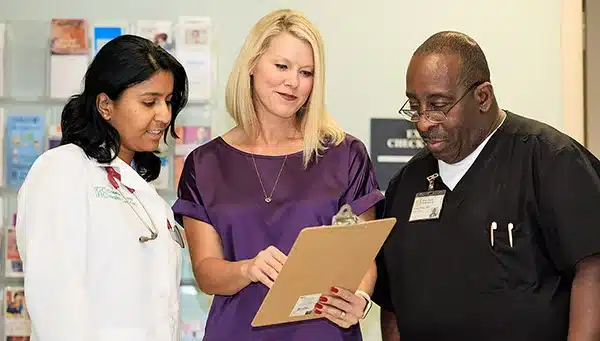
Collaboration is also reflected through Greene County Schools. During an appointment, a patient is informed about the integrated care model and asked if they would like immediate services or future services with a therapist on site.
Lamson said the students, in the College of Health and Human Performance based primarily in the Department of Human Development and Family Science and including the School of Social Work, have undoubtedly saved lives. Greene County Health Care CEO Melissa Torres has proof of ECU’s role in Greene County Health Care’s growth.
“For many years, ECU students were the only therapists providing mental health care in our clinics,” Torres said. “Over time, our partnership with ECU helped lay the groundwork for building our own behavioral health team. More therapists means more patients receive care.”
The first funding in 2006 came from the Kate B. Reynolds Foundation in partnership with Greene County Health Care. In 18 years, $4,105,762 has been secured and 154 students have received graduate assistantships to deliver integrated behavioral health care.
Greene County Health Care is celebrating 50 years this year and has five clinics offering medical, dental and mental health care covering a 17-county area.
Lamson, a Nancy W. Darden Distinguished Professor in HDFS and the university’s interim assistant vice chancellor for economic and community engagement, Torres and others have enjoyed seeing an uptick in the dental aspect and effectiveness in Greene and Pitt counties.
“One of our practice managers attributes the increase to three things: the students’ easy-going and approachable personalities, (Lamson’s) excellent rapport with our dental assistants and the students’ flexibility in approaching patients,” Torres said. “Our partnership with East Carolina University is a natural fit. East Carolina’s values are student-centered, inclusive and committed to service. Those values complement our mission and vision. Our mission is to provide compassionate, quality care, every day for all people. … The partnership gives ECU students an opportunity to learn about and serve their community as a whole, providing care to people who would otherwise not get the care they truly need.”
With mental health, Lamson said a major part of the development of student training focuses around an important question to patients — have you had thoughts of whether you would be better off dead?
“If you haven’t received training in how to ask that question and then what to do with the information, that can be really scary for the student and for the patient,” Lamson said. “What I have said time and again is I can promise you that our team is going to be ready to ask that question, and know what to do with the results. People need us to ask that question and many times, they want us to ask that question.”
National mental illness awareness week is Oct. 1-7. This year’s theme is “Together we care. Together we share.”
That is a fitting theme for what Lamson described as attempts locally to continue to reduce the stigma associated with discussing mental illness and suicidal thoughts.
“It needs to be a part of conversation, so we can really begin to make sure we are saving people’s lives,” Lamson said.
In 2005, ECU created the first doctoral program in the nation in medical family therapy. Many graduates have remained in eastern North Carolina for professional opportunities, which Torres said has helped patients of Greene County Health Care receive full care.
Alex Hernandez is a current ECU medical family therapy doctoral student who has embraced and benefited from his role with Greene County Health Care patients.
“Learning how the medical world works and how mental health is integrated into that world, this has been great and I’ve learned a lot, because it’s a huge learning curve,” Hernandez said. “It definitely prepares you. This is precisely what I want is doing therapy in the medical world, understanding that health is not just physical health or mental health. It is all of it together. That is what we practice and that is why we’re here.”
Seeing people collaborate and commit to this integrated care model has brought great pride to the co-creators of ECU’s medical family therapy doctoral program.
“The success of this collaboration and the integrated care services we have delivered across eastern North Carolina could not have been possible without the earliest vision and commitment of Dr. Jennifer Hodgson, and our partners, Dr. Tom Irons and Mr. Doug Smith, along with hundreds of devoted therapists, health coaches and our most current GCHC leadership,” Lamson said. “Most of all, this program could not have been possible without the patients who trusted our team for their care.”
ECU Health, local organizations, non-profits and other behavioral health and substance use groups came together on May 23 to host the 11th annual Mental Health Expo, which was in person for the first time since 2019.
Nearly 50 exhibitors saw groups and individuals come through as they answered questions and provided information about local mental health and substance use resources.
Glenn Simpson, ECU Health system service line administrator for Behavioral Health, said the opportunity to come back together in person was crucial for the event to connect with community members face-to-face.
“Most of us become accustomed to Zoom meetings and masking and not having that interpersonal relationship. As humans, interpersonal relationships are extremely important,” Simpson said. “Technology helped us with this event the last couple years but to be able to actually see people shake people’s hands, talk to them directly is really exciting.”
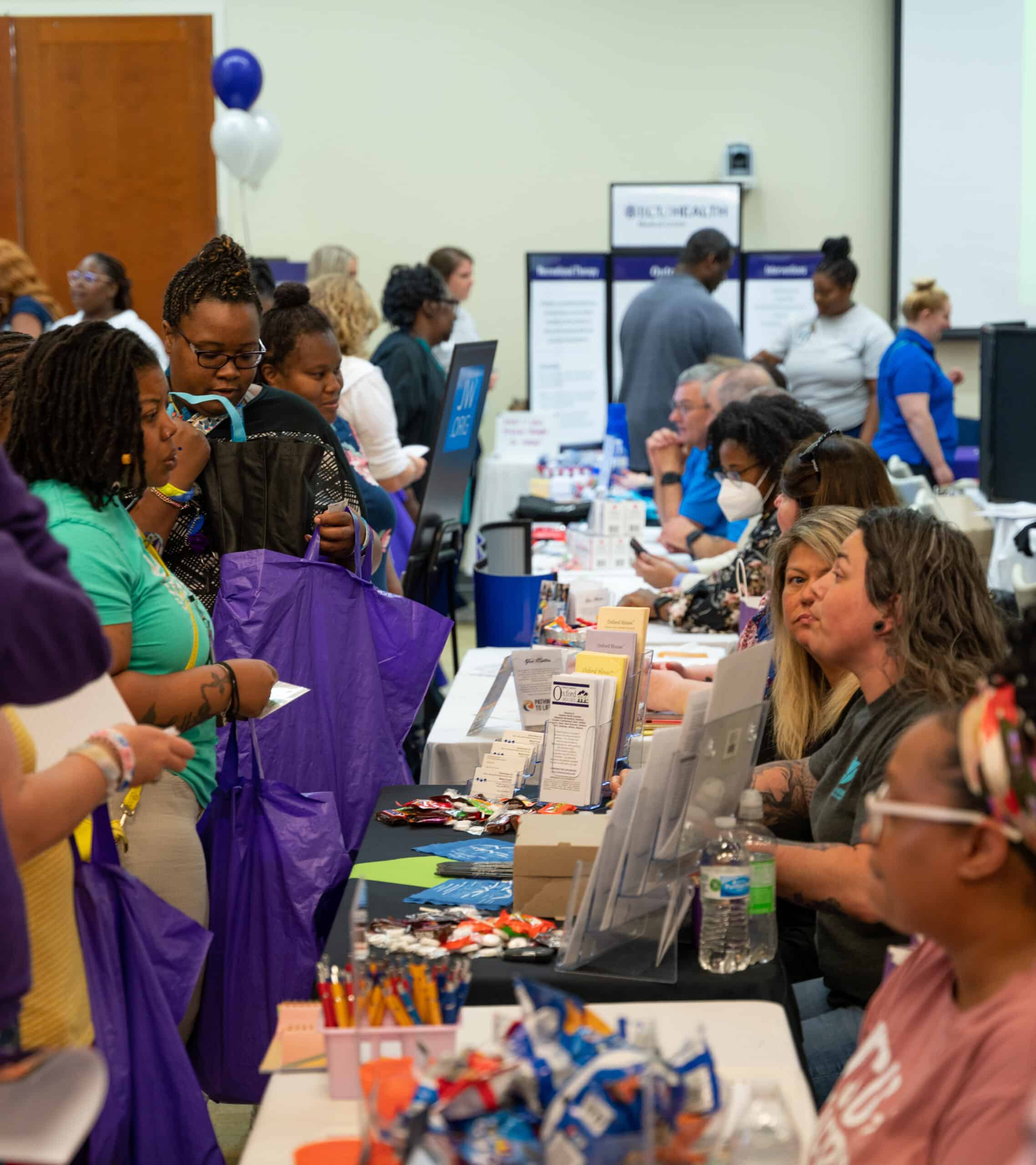
The event also included speakers presenting on a few different topics, including: “Mind Over Matter: Using Mindfulness to Assist with Treatment of Depression and Anxiety,” “Lay Responder Naloxone Training: When and How to use NARCAN Nasal Spray” and “Human Trafficking: Building Protective Factors for Prevention and Resiliency.”
Simpson said these “mini workshops” were helpful to give community members more information on topics that may be important to them.
Simpson also shared that this event would not be possible without the support of the community and the many organizations that came together to share information with eastern North Carolinians.
“There is help out there, you just kind of have to figure out how to get it,” Simpson said. “This event brings the exhibitors, agencies and the public together to share all of this information. I’ve already talked to a few people and realized I didn’t even know the agency existed and I’ve been doing this for a long time. It’s a real cool opportunity to learn what’s out there and I know the communities we collectively serve really benefit from that.”
The Walter B. Jones Center, located in Greenville, was one of nearly 50 exhibitors on hand for the Mental Health Expo. Team members from the center said the partnership with ECU Health is crucial and the opportunity to connect with community members in person is invaluable.
“It’s great to get the word out and to let people know what we do and let folks know how to get into treatment and get help when they need it,” Jade Butler, counseling supervisor at Walter B. Jones Center, said. “I think we have the same vision and goal in mind as ECU Health, to help as many people as we can with mental health and substance use issues. Having ECU Health Medical Center right here and us just down the road, I think we’re able to collaborate and be able to serve as many people as we can.”
Simpson said the event was also a great opportunity to help promote the 988 Suicide & Crisis Lifeline as well, which offers 24/7 access to trained crisis counselors who can help people experiencing mental health-related distress.
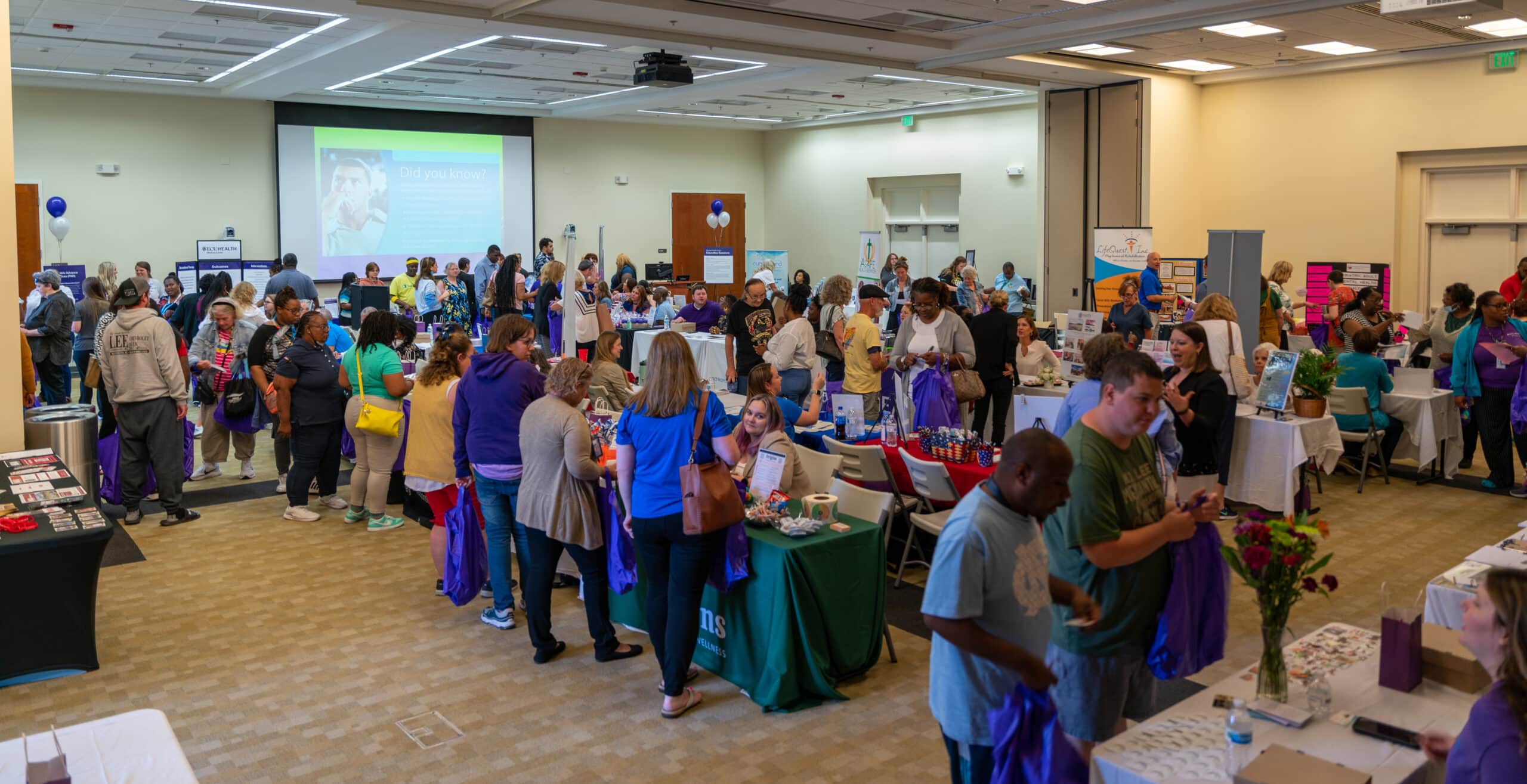
The lifeline is available nationwide and connects callers with a trained professional in the state from which they are calling. North Carolina residents contacting the 988 services are connected to a team in Greenville. The lifeline offers free and confidential support and can also help callers connect with nearby services.
Access to care was a frequent topic during the Mental Health Expo and Simpson shared that Medicaid expansion is an exciting development for those seeking behavioral health care. He added that the upcoming behavioral health hospital, slated to open in Greenville in spring 2025, is a major step in improving access for eastern North Carolina.
“We’re very excited to partner with Acadia,” Simpson said. “It’s going to be a state-of-the-art behavioral health hospital that will serve all ages. That’s all on top of what we’re already able to do today so it will be from children to senior citizens that need that level of care.”
ECU Health team members were on hand to share information on family services and important topics, like setting up a Psychiatric Advance Directive. The ECU Health team also shared information on MyChart and ECU HealthNow.
Mental health in the United States has been an ever-escalating problem for many years that has now become markedly worse due to the COVID pandemic. Fear, anxiety and isolation stemming from the pandemic exacerbated depression, substance abuse and even the incidence of spousal abuse.
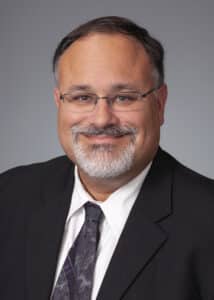
Dr. Michael Lang
In my role as chair of the Department of Psychiatry & Behavioral Health at the Brody School of Medicine and ECU Health, I have seen firsthand the impact a lack of mental health resources can levy on our most vulnerable citizens. Others in our community see and experience it as well, as evidenced by the large turnout and lively conversation at the Mental Health Town Hall hosted by the North Carolina Department of Health and Human Services in Greenville on Feb. 9. The themes and stories shared at the town hall were common, consistent and heartbreaking. I am grateful for the legislators and community members who came together to have an open, honest discussion and we all agree that urgent action is needed.
Emergency departments across the state are overrun with patients in psychiatric distress with few outlets available to provide them help. This has particularly been the case for patients with substance abuse disorders, our elderly and children. I personally have seen so many children in the emergency department that doctors had to treat other conditions in the waiting room. We owe our patients appropriate mental health services in a safe location with qualified professionals who are not only delivering excellent care but training the next generation of providers to take up the mantle of behavioral health care.
To that end, ECU Health’s partnership with Acadia Healthcare to build a new 144-bed freestanding mental health hospital here in eastern North Carolina is a step in the right direction. This facility, scheduled to open in 2025, will provide state-of-the-art care for not only the people of our region but also the entire state. The hospital will house distinct units that will be devoted to the care of specific populations of behavioral health patients. Included will be a geriatric unit, a substance abuse area, a space for those with significant co-morbid medical problems, the intellectually disabled and a 24-bed child/adolescent unit. Within its walls, every evidenced-based treatment available will be utilized to maximize our ability to rehabilitate, stabilize, and allow our patients successful community reentry.
Given the large number of disparate patients with varied diagnosis, the new behavioral health teaching hospital will serve as a training area for physicians, nurse practitioners, physician assistants, psychologists, occupational therapists, family therapists, substance abuse counselors and more. The hospital will be closely aligned with ECU Health Medical Center for access to the wide array of clinical and diagnostic resources our tertiary care center has to offer.
Our vision is for this facility to serve as a symbol of the commitment we at ECU Health and the Department of Psychiatry and Behavioral Medicine have to provide state of the art care for the people of eastern North Carolina. I am excited to form new partnerships and engage our community leaders to ensure that all citizens, whether they have schizophrenia or opiate use disorder, can live and prosper here in our wonderful region.
Michael Lang, MD, is chair of the Department of Psychiatry & Behavioral Health at the Brody School of Medicine and ECU Health.
Children and adolescents with mental health care needs will benefit from a $3.2 million partnership between East Carolina University and the United Health Foundation.
The grant will expand the North Carolina Statewide Telepsychiatry Program (NC-STeP) within the ECU Center for Telepsychiatry and e-Behavioral Health. The investment is part of the United Health Foundation’s ongoing commitment to working with ECU to address mental health challenges in North Carolina — this time with youth.
In joining leaders to announce the three-year partnership, North Carolina Gov. Roy Cooper highlighted the critical needs surrounding children’s mental health in the state.
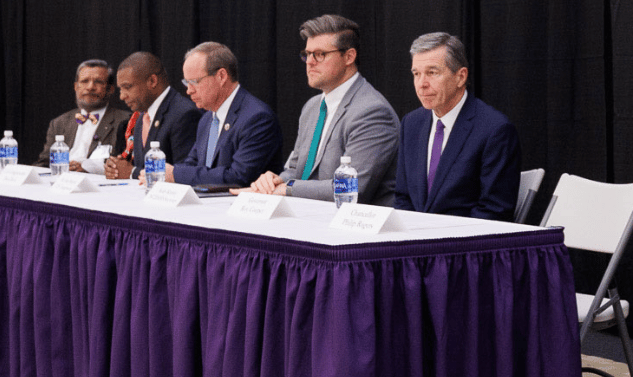
“Not only do we need to pay attention to our health, but our mental health as well and we’re recognizing that more than ever,” Cooper said. “That’s why I am so excited that the United Health Foundation, Dr. Sy Saeed and ECU have come together to try to get mental health treatment to young people in a more efficient and better way.”
Cooper said the NC-STeP partnership between ECU and the United Health Foundation helps advance toward his mission for the state for people to be able to live healthier lives with opportunities of purpose and abundance. Cooper said residents of rural North Carolina know how hard it is to get access to health care. Telemedicine will help bring experts to people wherever they are throughout North Carolina.
“I’m excited about this project. There are going to be people’s lives improved and people’s lives saved because of it,” Cooper said.
Through this expanded program, NC-STeP will provide access to mental health services for children in their established pediatric or primary care setting, removing the stigma sometimes associated with mental health care, said Saeed, director of the ECU Center for Telepsychiatry and founding executive director of NC-STeP. Through telemedicine, the program will offer expert consultation support for clinicians.
“In North Carolina, children experience significant challenges accessing the care needed to address their mental health. More than 70% of children in North Carolina with a mental health disorder do not receive treatment, and 92 out of 100 counties in the state are designated as mental health professional shortage areas,” Saeed said. “A growing body of literature suggests that the use of telepsychiatry to provide mental health care has the potential to mitigate the workforce shortage that directly affects access to care, especially in remote and underserved areas.”
NC-STeP was established in 2013 and has completed more than 56,000 psychiatry assessments in hospital emergency departments and has served more than 14,000 patients in its 23-community primary care settings. The expansion will provide mental health care services to underserved children and adolescents in six community-based pediatric and primary care clinics in rural and underserved parts of the state.
U.S. Reps. Greg Murphy and Don Davis, who helped guide NC-SteP in the General Assembly, have continued to support the initiative in Congress.
“It’s the people with boots on the ground, the people who are actually taking care of patients who deserve most of the praise,” Murphy said. “Sy has been a lifesaver for many individuals.”
Murphy thanked United Health Foundation for funding the initiative that will help address the unique challenges of patients in rural areas.
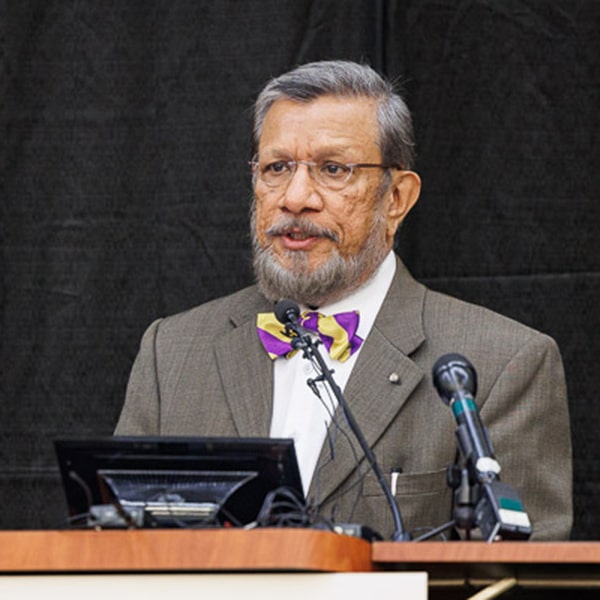
Davis emphasized the focus on children’s mental health as an important step in the effort to “provide every child a fighting chance to realize the American dream in eastern North Carolina. Dr. Sy has been a fearless voice in this effort,” Davis said.
“We’re honored and excited to partner with East Carolina University to address key health challenges our young people are facing,” said Anita Bachmann, CEO, UnitedHealthcare Community Plan of North Carolina, part of UnitedHealth Group. “By working together and creating an interconnected system of clinical and social services, we can continue to produce better health outcomes for North Carolinians.”
The United Health Foundation and ECU also partnered in 2020 through a $1.25 million grant to expand telepsychiatry services to address the mental health needs of expectant and new mothers. Through the Maternal Outreach Using Telehealth for Rural Sites (MOTHeRs) project, ECU developed and deployed a new obstetric care model for high-risk patients and addressed food insecurity among pregnant women.
North Carolina Health and Human Services Secretary Kody Kinsley touted the importance of access to health care — particularly mental health care services — in rural North Carolina.
“There is no health without mental health,” Kinsley said. “In particular, I think we know that mental health needs for children are more acute than ever.”
Kinsley said the investment announced today is a “win-win-win.” The project is being built on a program that has led statewide in expanded access to care.
“Truly it has been ECU driving access to telepsychiatry far before it was a fashionable thing,” Kinsley said.
Innovation is at the center of ECU’s initiatives fostering regional transformation in health care. ECU Chancellor Philip Rogers said the partnership with the university and the United Health Foundation allows many disciplines across campus to address the disparities in health care.
Rogers said the initiative would not be possible without the steadfast dedication and hard work of leaders at ECU, beginning with Saeed, who leads the team responsible for the operational aspects of the program.
“This transformative grant builds on our leadership in leveraging technology to provide care in the region and across the state,” Rogers said. “Our partnership with the United Health Foundation runs quite deep. This partnership has already made a significant impact as we prepare students to address the critical shortage of mental health professionals in our state.”
“Lucky” Xue, Robert D. Teer Distinguished Professor, Department of Management Information Systems, and students in the ECU College of Business are responsible for two components of the project — a virtual reality video game (AI) and a knowledge management system (KM). Xue said the project would have a profound impact on her research, teaching and community engagement.
“The objective of the AI-KM component is to strengthen the collaboration among mental health care professionals, family members and community partners across eastern North Carolina, and to optimize the utilization of existing mental health knowledge while uncovering innovative practices,” Xue said.
“The students from the Department of Management Information Systems in the College of Business will be given the unique opportunity to participate in the system development process. This will serve as a practical application of the knowledge they have gained through their coursework and an opportunity to make a positive impact on society. It’s an excellent chance for them to hone their skills and contribute to a meaningful cause.”
Regional disparities
In North Carolina, children experience significant challenges accessing the care needed to address their mental health. This partnership will help connect youth with mental health services in areas with provider shortages, said Dave Tayloe Jr. at Goldsboro Pediatrics.
“We have a significant shortage of mental health professionals, and often these key members of our health care workforce are not paid enough to cover their expenses when they provide mental health services for at-risk children. Most communities do not have even one child psychiatrist to help primary care providers care for the children who have the most serious mental health problems,” Tayloe said. “We have seen great benefit from providing mental health educational courses for primary care health professionals, having mental health professionals who work in the schools, the primary care practice, and the community, and having access to telepsychiatry services for the children most at risk for adverse mental health outcomes.”
The new grant program will take about six months to prepare. Saeed said that through NC-STeP, ECU is serving others as the university’s mission calls it to do.
“Mental health — including psychological, emotional and social well-being — is a vital part of our overall health. This is especially true for children when we consider that for many adults with mental disorders, symptoms were present, but often not recognized or addressed, in childhood or adolescence,” he said. “The good news is that we live in times when the care for mental disorders has never been more effective.”
Read more from ECU News Services.
Support, action and investment are needed in the East to solve what community members and experts alike are calling a mental health crisis across the region and state. That was the common theme at the Mental Health Town Hall in Greenville hosted by North Carolina Department of Health and Human Services (NCDHHS) Secretary Kody H. Kinsley and local legislators Feb. 9.
The bipartisan panel for the town hall featured Rep. Gloristine Brown, Sen. Jim Burgin, House Majority Leader John Bell, Rep. Dr. Tim Reeder and Sen. Kandie Smith, all of whom represent districts that fall within ECU Health’s 29-county service area. With more than 150 people in attendance, community members and representatives for local organizations shared their perspectives on mental health with the panel.
Kinsley said town halls are crucial to help him and other state officials understand the unique challenges in each area of the state.
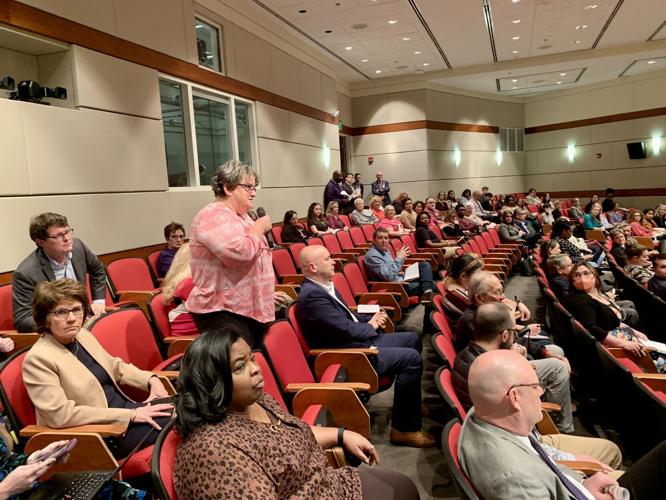
“We are having mental health challenges all across the state, but every community is different because every community’s resources are different and their needs are different,” Kinsley said. “It’s really important to me as we set statewide policy that we’re doing it in a way that is informed by boots on the ground, and we heard a lot of that tonight, and we know we have a lot of work to do, and I’ve appreciated this conversation.”
Dr. Michael Lang, chair of the Department of Psychiatry & Behavioral Health at ECU Health and the Brody School of Medicine said the town hall was a positive step to help share with leaders what he and others are seeing locally. He said it was symbolic to bring the event to Greenville where he and his team see a disproportionate number of patients daily needing mental health resources at the ECU Health Medical Center Emergency Department.
“This was a great event for us overall,” Dr. Lang said. “We had a chance to meet our leadership from Raleigh and let them know about the issues and challenges we’re facing, not only here in eastern North Carolina but across the state. I can tell you firsthand we feel the impact of the mental health crisis here in the region and here in Greenville at the medical center. The challenges we’re talking about, such as a lack of access to resources and a dependence on emergency department visits for those suffering from mental health crises, are felt every day at hospitals across the region. That’s why it is important to focus on improving outpatient behavioral health resources to crate stable environments and prevent hospitalization.”
Officials noted there are at least 350 mental health patients in emergency departments across the state waiting for bed placement on any given day. The lack of access to care and resources are more magnified in rural areas such as eastern North Carolina where there is a disproportionate number of under or uninsured individuals. The bipartisan panel all agreed Medicaid expansion in North Carolina would help provide necessary resources towards solving the crisis and Sen. Burgin noted that Medicaid expansion would allow the state to spend more than $1 billion on improving access to behavioral health resources.
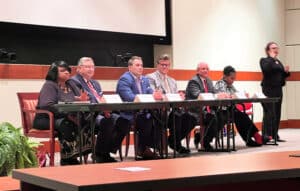 “ECU Health is grateful for our local legislators who are committed to having these difficult but necessary conversations while at the same time pursuing common-sense solutions like Medicaid expansion,” said Brian Floyd, chief operating officer, ECU Health. “Medicaid expansion would help provide needed health coverage to 100,000 people in our region and improve the way we as a state deliver behavioral health resources.”
“ECU Health is grateful for our local legislators who are committed to having these difficult but necessary conversations while at the same time pursuing common-sense solutions like Medicaid expansion,” said Brian Floyd, chief operating officer, ECU Health. “Medicaid expansion would help provide needed health coverage to 100,000 people in our region and improve the way we as a state deliver behavioral health resources.”
At ECU Health, the system announced a partnership with Acadia Healthcare to build a state-of-the-art, 144-bed behavioral health hospital in the medical district of Greenville, less than a mile from ECU Health Medical Center.
The hospital, slated to open in 2025, will provide important access to behavioral health services for adults and pediatric patients, with 24 inpatient beds specifically for children and adolescents with mental health needs.
“I’m incredibly grateful for health systems that have been investing in building more behavioral health beds,” Kinsley said. “This is important but I have a job to do on this, too. We have got to increase [reimbursement] rates to help make those beds sustainable and used.”
Resources
East Carolina University’s postgraduate program in cardiac psychology creates professionals who are ready to help patients cope as they adapt to life-saving heart devices.
On the heels of marking its 15th year, ECU’s nationally unique program in clinical health psychology continues to gain momentum through positive patient outcomes — and national recognition.
The program is a collaboration between ECU’s departments of psychology and cardiovascular sciences that has yielded a nationally unique blend of academics and research. The model integrates training psychology doctoral students and cardiology fellows in cardiac clinics, a strategy that the program’s founder calls the best of both worlds.
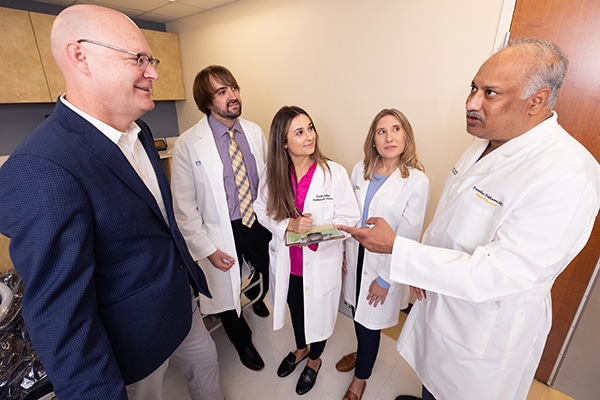
“This is a success story from eastern North Carolina,” said Samuel Sears, program director and professor in the departments of psychology and cardiovascular sciences. “From a national landscape, this is an extremely unique program. Only at East Carolina do you have this kind of synergized, integrated, one-for-one engagement in the training of cardiologists and the training of psychologists. Our program is intending to lead the country in this.”
Sears established the training program in 2007 and collaborates with Rajasekhar Nekkanti, associate professor and director of the cardiology fellowship program at ECU and ECU Health, to offer ECU students an integrated program experience that spans clinical care, research and training.
“Dr. Sears and his colleagues have been able to accomplish what others have only talked about,” said Alan Christensen, professor and chair of the ECU Department of Psychology. “Their seamless integration of clinical psychology into a cardiovascular medicine setting is really a pioneering effort in implementing what I believe will prove to be a more effective approach to training, research, and caring for patients.”
The growing field of cardiac psychology focuses on providing psychological care that is an interdisciplinary, comprehensive care approach to cardiac arrhythmia patients and their families.
Depression and anxiety are common occurrences after cardiac events and can occur in as many as one-third of all patients. These conditions interfere with all aspects of recovery from daily rehabilitative planning, medication adherence, and the pursuit of quality of life.
“Cardiac psychologists help by validating the emotional experience of having a heart problem, and helping patients take the next steps in their recovery emotionally and behaviorally,” Sears said. “ECU Cardiology and Cardiovascular Surgery continue to innovate, and that allows our patients to survive. Here at East Carolina, we have the vision and program to address the patient experience and recovery process fully from a psychological and behavioral perspective. We integrate all the aspects of recovery and prepare trainees for the future of cardiac care.”
The program was highlighted in a 2022 edition of Health Psychology, a journal of the American Psychological Association. The article, “Cardiac Psychology Training in a Rural Health Care Setting: East Carolina Heart Institute,” was led by author Kayla Sall, a 2023 graduate of ECU’s clinical health psychology program. Doctoral students Ashley Griffith, Emily Midgette, Andrea Winters and Connor Tripp also co-authored the article with Sears and Nekkanti.
“We are very proud to publish in our field’s top journal,” said Sall, who begins a psychology internship at Brown University this fall. “The publication goes to show how unique our training experience is. It’s very rare to find cardiac psychologists that are located in cardiology.”
The Health Psychology article covers not only the program’s unique nature of intertwining science with practice, but also its ability to adapt to the COVID-19 pandemic by transitioning to using telehealth to serve patients in rural North Carolina. It also explores the health disparities in eastern North Carolina that impact cardiac patient care and progress.
“Cardiovascular health is one of the leading causes of death in the U.S.,” Sall said, “so being able to take that lens and apply it to the social determinants of health has been amazing, and it’s how we’ve been able to do what we do.”
Greenville native and ECU graduate Scarlett Anthony didn’t have to go far to find a program that offers world-class education and preparation that will help her make a difference in her home region and beyond.
“I chose ECU’s program because of the focus on health psychology and the intersection between psychology and medicine. We train alongside psychologists who are embedded in medicine, and our program provides us with exceptional training among various health care settings,” said Anthony, a doctoral student in clinical health psychology. “I chose ECU’s program because of the dedication to serving diverse populations of eastern North Carolina, and I am passionate about providing care to those who may not have access to health psychology services otherwise.”
Standards of practice

Sall led the writing team in detailing the ECU training program and its strong collaborations in cardiology. The article presents ECU’s program as a national model for ideal collaboration between cardiology and psychology training that enhances the clinical and research expertise of both groups.
The ECU cardiac psychology program is part of the APA accredited clinical health psychology program. This program has achieved national rankings over its 15-year existence and annually has an approximately 5% acceptance. Rob Carels serves as the director of clinical training for the clinical health program.
“The article confirmed that the ECU program is not only one of a kind, but it remains the model as programs and universities try to create this similar-type experience,” Sears said. “The reason it’s so hard to create the ECU experience is that it requires both physicians and psychologists accommodating very different mindsets and contributions with the shared goal of patient success first. Physicians can quickly implant a cardiac device. Psychologists can quickly assess and treat psychological concerns. But when these two sets of problems merge, we need shared expertise.”
The article also highlights the setting of ECU’s health psychology program, a rural area where the social determinants of health — including environment, economic stability, community context, education and health access — impact health and wellness on a greater scale.
“Being in eastern North Carolina, we have a very unique setting with our patient population in a rural area,” Sall said.
That context allows psychologists to better understand the behavioral and mental health of cardiac patients. Many patients seen by cardiac psychologists at the East Carolina Heart Institute include those who suffer depression after a heart attack or other cardiac event, those with atrial fibrillation (a-fib) and those who have recently been fitted with implantable cardioverter defibrillators (ICD) — devices similar to pacemakers that correct heart arrhythmias with a high energy shock that can feel like being kicked by a horse.
“I think that is what is so scary for patients; they agree to have this device implanted, they know it’s life-saving, but you don’t know when the shock is going to go off,” Sall said. “You may go the whole rest of your life without receiving a shock, so that’s where part of the anxiety and fearfulness comes in.”
In the program’s scientist-practitioner approach, providers on each side have a thorough understanding of the opposite discipline.
“I think that’s what’s cool about cardiac psychology — here we are with people presenting with medical conditions or health issues and we’re evaluating, diagnosing, treating emotional behavioral disorders within the context of health and medicine,” Sall said. “We’re not doing just one or the other, we’re doing these together.”
World expert in action
Sears is a highly productive researcher examining quality of life and psychological adjustment in patients with heart rhythm disorders and ICDs. He has published more than 200 articles in the medicine and psychology research literatures and has well over 11,000 citations. In 2021, Expertscape.com named Sears one of the top 50 experts and most prolific authors in the world on ICDs over the last 10 years, amongst the 27,847 authors on the topic.
“I’m involved in both the training of psychologists as well as the training of cardiologists, so we’re trying to make cardiologists better at patient psychology and psychologists better at understanding the cardiology, so it’s synergistic,” Sears said.
Sears travels the world presenting his research and lending his expertise to patient, family and physician groups.
In 2013, the UNC Board of Governors presented Sears with the O. Max Gardner Award, the highest honor bestowed to a faculty member in the UNC system for contributions to mankind.
“The O. Max Gardner Award changed me because I stopped looking for external validation about our achievements. I desperately wanted to make an impact on our patients, our students, our university, our state and beyond,” he said. “The award confirmed some of these marks, so I used my energies more efficiently on the work at hand. I am proud of the health psychology program and the cardiac psychology program that my colleagues and students have created. In terms of work, I am so pleased that many of our ideas about helping cardiac patients are broadly employed across many sectors in cardiology, not just where we started.”
The article in Health Psychology signals consistent success and upward momentum for the program, said Sears, adding that Yale University’s health psychology program is the only other such program mentioned in that edition of the journal.
“This is a 15-year-old program. We’ve established success,” he said. “This is not a great idea that’s going away. Great ideas happen all the time, but they’re not sustainable. This is a sustainable solution that has true outcomes.”
When it comes to patient outcomes, Sears is optimistic that the growing field of cardiac psychology will continue to yield hope and healing.
“We can’t fix all the health inequalities, but what we can do is help our patients make small steps to have better awareness of where there are a lot of possibilities and decision points, and connect them to other resources,” Sears said. “Yes, this is a hard mountain to climb. Let’s do this together.”
Doctoral student Zachary Force said students begin the program learning what clinical health psychology can offer the world — and how ECU is leading the way.
“ECU has always done things differently, and other institutions are starting to take notice. ECU’s cardiac psychology service has received national recognition as the only place in the country to receive specialized training in an area with increasing need,” he said. “ECU’s fighting spirit imbues its doctoral students with the resiliency needed to advocate for psychology within the medical field.”
Read more from ECU News Services

Dr. Sy Atezaz Saeed
Contrary to popular belief, psychiatric disorders such as depression and post-traumatic stress disorder are just as common as other chronic conditions. About 11 percent of the U.S. population has been diagnosed with Diabetes, while in comparison 26 percent of the population has a diagnosable mental disorder per year.
Unlike other chronic conditions, there are few resources to treat mental illnesses in North Carolina, which is exemplified by the lack of behavioral health providers. Alarmingly, 42 out of 100 counties in the state have no psychiatrist or active behavioral health provider, leaving more than half of adults with mental illness without treatment options.
How did we get here?
In 2001, the state of North Carolina began to privatize mental health services by transitioning them from public area authorities to private provider groups. This transition meant private agencies would become solely responsible for caring for people with behavioral and mental health disorders as well as substance use disorders. For those without access to a local behavioral health professional or without the ability to pay for care, their only option is often the hospital emergency department (ED). In fact, one out of every eight ED visits is related to mental illness or substance use disorders. This puts more strain on EDs, which were not designed for this type of specialized care.
Working together
As a community, we need to work together to change the way behavioral health care is delivered in North Carolina. Solving the mental health crisis requires collaboration and partnership across a broad spectrum of services. One way ECU Health is doing this is through a joint venture partnership with Acadia Healthcare, a national leader in providing behavioral health services. Recently, we announced plans to build a state-of-the-art behavioral health hospital that is slated to open in spring 2025, pending regulatory approval.
In addition to serving adult patients, the new hospital will provide much-needed access to the behavioral health needs of children and adolescents, providing the only child and adolescent psychiatric beds within 75 miles of Greenville. Together, both ECU Health and Acadia will invest more than $60 million in expanding behavioral health resources.
Working in tandem with other partner organizations as a network providing a wide variety of treatment options can create a much greater impact than we’re able to on our own.
Everyone deserves access to high-quality health care, and ECU Health is committed to doing its part to offer vital behavioral health treatment to eastern North Carolina. While this partnership provides promise for those who are seeking behavioral health care, my hope is that we continue to find ways to partner in our communities and across the state to ensure our residents have access to the care they need to live healthy, fulfilling lives.
Sy Atezaz Saeed, MD, MS, FACPsych is Executive Director of the Behavioral Health Service Line for ECU Health, and Professor and Chair Emeritus of the Department of Psychiatry and Behavioral Medicine in the Brody School of Medicine at East Carolina University. He also serves as the Founding Director of the Center for Telepsychiatry at ECU and as the Founding Director of North Carolina Statewide Telepsychiatry Program (NC-STeP). Dr. Saeed has published more than 100 peer reviewed publications. In 2019, he was awarded the prestigious Gov. Oliver Max Gardner Award, the highest UNC award and selected by the UNC Board of Governors, which recognizes UNC system faculty who have “made the greatest contribution to the welfare of the human race.” To learn more, visit ENCBehavioralHealth.org.
Health care workers are well-versed in serving their community, even if that community happens to be an ocean away.
“I’m from Tanzania, east Africa. In a rural village called Taloha,” said Daniel Makoko, behavioral health team member at ECU Health.
After settling in eastern North Carolina, Makoko continued to help improve living conditions in his home village.
“The village has one primary school,” Makoko said. “So these kids use like four classrooms but there are like 270 kids. They share the classroom because it’s not enough. But also the main problem was that the room was leaking when it’s raining.”
So Makoko set about raising money through donations and events like yard sales to put a new roof on the primary school.
“They asked me, ‘What can we do?’ So I told them that if we can get a roof for them, It will be much transformation for the school,” said Makoko.
A transformation in more ways than one, made possible with the help of friends, family and colleagues.
“He’s a great inspiration to me just to see all the things that he has accomplished”, said Tony Dixon, a behavioral health team member at ECU Health. “Between four yard sales and donations from behavioral health services, we were able to raise the four-thousand dollars to get the roof done.”
“I was able to go there and implement the project and we finished the roof and the kids were so happy,” said Makoko.
It’s joy no roof can contain and an example of ECU Health values making a difference half a world away.
“This shows the greatness of the people here and how they are able to respond to the needs of other people across the world,” said Makoko. “I really appreciate it so much.”
Resources
Watch more ECU Health News videos
